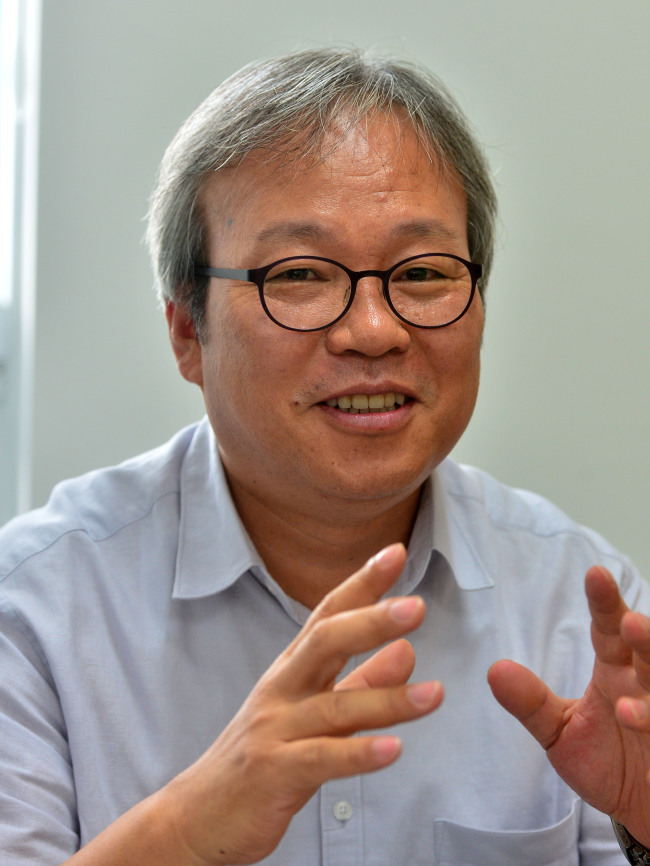The electric personal mobility vehicle ― a one-passenger car that comes in various shapes and sizes ― should break away from traditional automobile design in order for people to adopt the innovative vehicle for the urban lifestyle, according to Lee Keun, dean of the International Design School for Advanced Studies at Hongik University.
“It’s a new genre of mobility. The material, design and fuel are completely different from gas-powered cars. The reason people feel hesitant to embrace the electric vehicle is because they keep comparing them to gasoline-powered automobiles,” Lee said in an interview with The Korea Herald on Monday.
“It’s a new genre of mobility. The material, design and fuel are completely different from gas-powered cars. The reason people feel hesitant to embrace the electric vehicle is because they keep comparing them to gasoline-powered automobiles,” Lee said in an interview with The Korea Herald on Monday.

“Those who love the gasoline engine sound may think it doesn’t live up to their expectations. That’s why we need new forms of design for the electric personal mobility vehicles.”
According to Lee, the electric personal mobility vehicle is an example of optimal choices in terms of design and function as everything should fit into the ultra-compact vehicle.
“To break the existing form of the automobile is a way for people to adopt the innovative transport,” Lee noted.
The existing design for the electric personal mobility vehicle took features of motorbikes and two, three or four wheels, but Lee noted a variety of technologies and designs can be applied.
“People can assemble different features like Lego bricks. They choose functions they need in the vehicle,” said Lee. “It will become your second moving house or office,” Lee said.
Lee launched the Personal Mobility Research Center in April this year on the Hongik University campus. The research center gathers ideas from different fields of studies such as engineering, transportation, electronics, management and marketing to study sustainable transportation.
“The research center studies relations between humans and mobility and seeks to find solutions in technology and offer advice and ideas to government agencies to implement the new electric vehicles for usage,” said Lee.
Through collaboration with international institutes, the research center aims to drive the innovation in electric personal mobility vehicles in Korea.
It runs a collaborative program with the world’s leading academic institutes in innovative transport means such as RWTH Aachen University in Germany, Delft University of Technology in the Netherlands, and MIT SENSEable City Lab.
“We will be the focal point in putting together different fields into the development of electric personal mobility, which requires convergence of many technologies and design know-how,” Lee noted.
By Lee Woo-young (wylee@heraldcorp.com)



![[Exclusive] Korean military set to ban iPhones over 'security' concerns](http://res.heraldm.com/phpwas/restmb_idxmake.php?idx=644&simg=/content/image/2024/04/23/20240423050599_0.jpg&u=20240423183955)




![[Herald Interview] 'Amid aging population, Korea to invite more young professionals from overseas'](http://res.heraldm.com/phpwas/restmb_idxmake.php?idx=644&simg=/content/image/2024/04/24/20240424050844_0.jpg&u=20240424200058)
![[Pressure points] Leggings in public: Fashion statement or social faux pas?](http://res.heraldm.com/phpwas/restmb_idxmake.php?idx=644&simg=/content/image/2024/04/23/20240423050669_0.jpg&u=)









